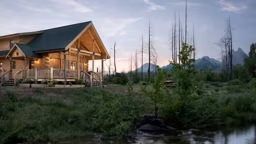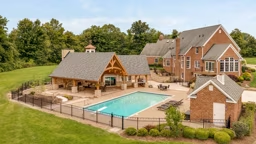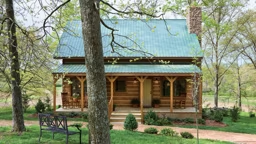
An advocate for custom homes for custom lifestyles, Allen Halcomb of Knoxville, Tennessee-based MossCreek Designs makes his living helping prospective home owners create the perfect plan to satisfy their every want and need. Here, Allen shares his expert tips for DIY designers who want to have a strong hand in planning their dream home.
So, tell us a little bit about what you do at MossCreek?
We're a log and timber frame home design firm. We started out offering design services to companies that needed help with their special clients. After doing that for several years, we decided to work more directly with clients, rather than base our business on referrals.
Do you still work with log home companies?
Yes. Recently we've had a lot of inquiries about designing smaller homes. To accommodate those customers, we teamed up with two log home companies: PrecisionCraft in Meridian, Idaho, and Tennessee Log Homes out of Athens. If you're looking for something that's more budget-friendly, you can go to these companies to get that great MossCreek look at a lower price.
See also Understanding Construction Loans
In addition to the recent popularity of small-scale homes, what are other trends in log home design today?
People are doing a lot of research into different architectural styles, whether it's Adirondack or Appalachian, a Pacific Northwest look or a Canadian lodge. I think that's due to a more educated consumer base that really wants to explore all of their options before deciding on one particular style of home.
Once a potential client contacts you for design assistance, how do you walk them through the process?
We schedule a day to visit every home owner's property. Once we're there, we take a look at what the conditions, restrictions and opportunities are for each home. We then match those up with the home owners' expectations.
I'm assuming you'd design a home differently, depending on where people are at in their lives.
Definitely. First we have to address a few questions: Are they empty nesters? Will this be a primary or secondary residence? Next, we find out how they want to use their home. Then we discuss how other clients have handled the same wants and needs in their homes' designs and what they seemed to enjoy or not enjoy about the finished structure.
What are some "log home essentials" everyone should think about when designing a home?
When planning your space, incorporate a layout that really works with your land. For the most part, log homes are sited in more natural, rustic settings than, say, a subdivision home. If you have a lot with a gorgeous view, capture that view. If you're building a home in the woods, do something more understated and "of the land" rather than "on the land."
Budget and size aside, what are some of your favorite things to include in a home?
Everyone should include what I like to call "special spaces." Think of the areas that are must-haves, and then add something extra. My favorites: window seats and stair landings. But you also can improve a master suite by adding a nice sitting area. Another great idea is to take the front porch and rather than making it a standard 4 to 6 feet deep, make it 8 or 10 feet deep so you can group furniture on it. By doing this, you're creating interesting secondary spaces that make the house more than just the expected. It's the unexpected that makes home design fun.
This article is featured in the October 2006 issue of Log Home Design.

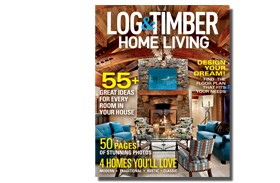


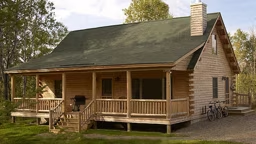
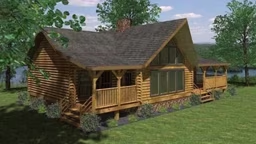
_11868_2024-09-17_08-44-256x288.avif)
